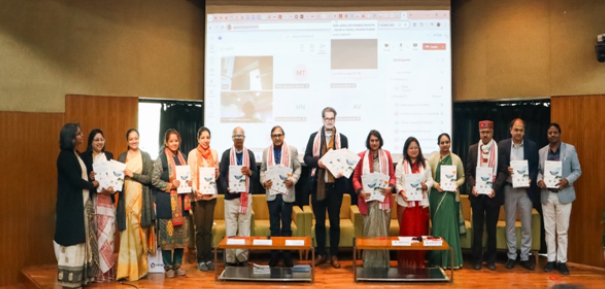


13th December 2024
On 13th December 2024, IIT Guwahati, in collaboration with IIT Mandi and CSTEP Bengaluru, released the report titled “District-Level Climate Risk Assessment for India: Mapping Flood and Drought Risks Using the IPCC Framework.”
The report, launched by distinguished dignitaries from the Department of Science and Technology (DST), Government of India, the Swiss Agency for Development and Cooperation (SDC), and representatives from partnering research institutions, provides a comprehensive analysis of district-level climate risks across India.The launch event was attended by approximately 60 participants, including key stakeholders and experts from diverse fields, underscoring the significance of this critical initiative. The report was developed through a participatory process involving all states, serving as both a capacity-building initiative and a platform for mutual learning.
Utilizing the IPCC framework, the study highlights the severe risks of floods and droughts in vulnerable regions such as Assam, Bihar, and West Bengal, emphasizing the need for region-specific adaptation strategies.
Speaking during the event, Dr. Anita Gupta, Head of Scientific Divisions at the Department of Science and Technology (DST), emphasized:
"Climate change is one of the most formidable challenges impacting agriculture, livelihoods, and every aspect of life. Addressing it requires collective effort and an innovative framework."
Mr.Pierre-Yves Pitteloud, Senior Regional Advisor at the Swiss Agency for Development and Cooperation (SDC), highlighted: "Achieving sustainable development requires a careful balance with climate resilience. For regions like the Himalayas, it is crucial to integrate climate adaptability with economic growth."
The district-level Climate Risk Assessment for India is anticipated to significantly enhance the capacity of state climate change cells and State Disaster Management Authorities (SDMAs) in conducting flood and drought risk assessments. This will play a crucial role in supporting effective adaptation planning and resilience-building efforts.






